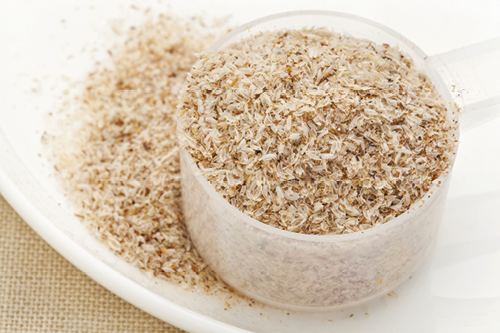Q: What is the difference between psyllium fiber supplements and those with wheat dextrin?
A: Judith C. Thalheimer, RD, LDN, a registered dietitian and managing editor of Tufts Health & Nutrition Letter, answers: “Psyllium is a natural fiber extracted from seeds or husks of the Plantago ovata plant. Wheat dextrin is a chemically altered form of wheat starch. Both are commonly sold as fiber supplements in powders or capsules or added to processed foods to boost fiber content. Both are soluble fibers, but they have different effects in the body.
“In order to understand the differences, we need to dive into the complicated world of fiber classification. Fibers can be soluble or insoluble, viscous or non-viscous, and fermentable or nonfermentable. The combination of these attributes determines how that particular fiber behaves in the body and whether it has particular health effects.
“Both psyllium and wheat dextrin are soluble fibers, but psyllium is viscous (it forms a gel with water) and nonfermenting (it is not used by the gut microbiota) and wheat dextrin is non-viscous and fully fermentable (it is broken down by gut microbes). What does this mean for your health?
“Gel-forming psyllium is good for both softening hard stools and firming up loose stools. It is effective in preventing or relieving constipation. Research shows viscous fibers like psyllium or the fiber in oats can have some impact on improving blood sugar control and lowering blood cholesterol levels.
“Fermentable wheat dextrin does not form a gel with liquid, so it is not helpful for constipation or diarrhea. Nor can it help lower cholesterol or control blood sugar. It does, however, serve as a prebiotic, providing nourishment to the gut microbiota. When microbiota ferment fiber, they release gas, so wheat dextrin may cause bloating and flatulence.
“While it’s best to get fiber from a variety of whole and minimally processed plant foods, both of these fiber supplements will boost your fiber intake if you are falling short. They are considered safe, and possible side effects are limited to gas and bloating. People with celiac disease should talk to a doctor before taking wheat dextrin, although, due to its very low gluten content, it can be marketed as gluten free.”
























